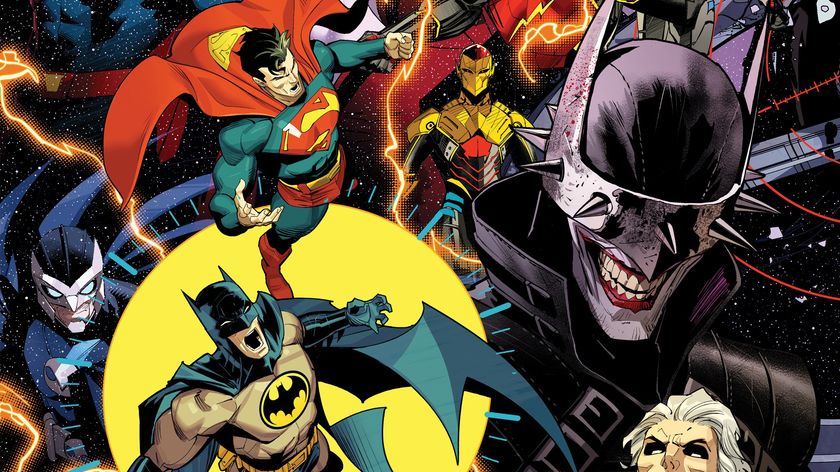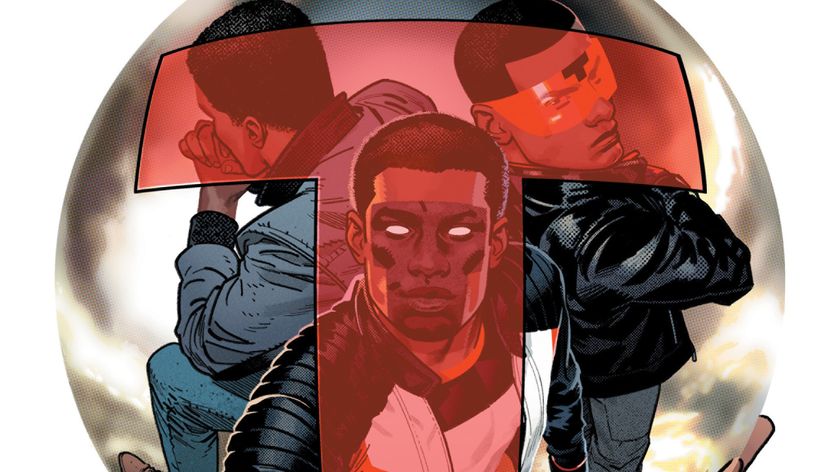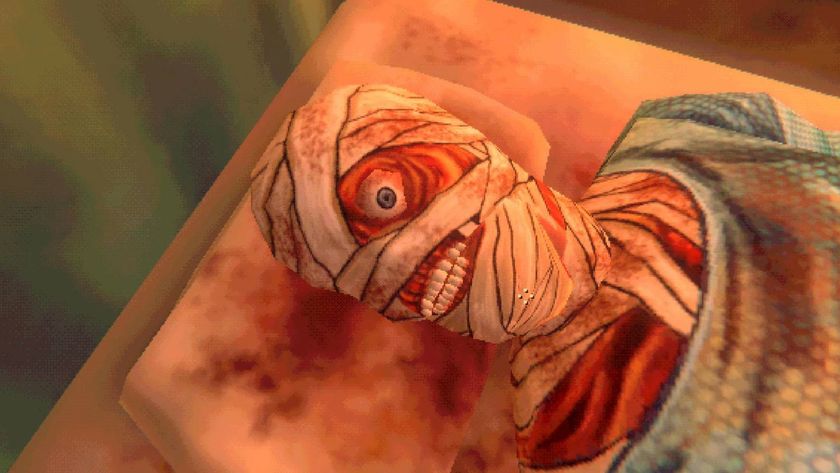The most important and impactful DC Comics events of all time
Crisis on Infinite Zero Metal Flashpoints! These are the most impactful DC Comic events of all time
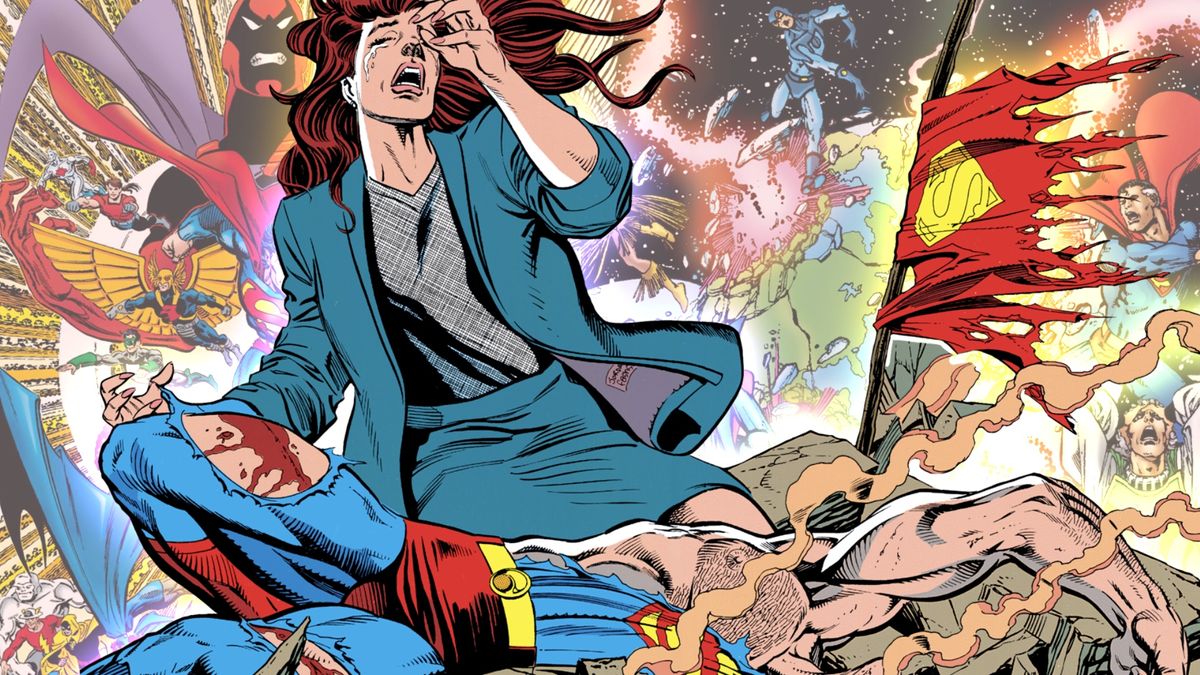
This year, DC is marking the 30th anniversary of one of the publisher's biggest comic book events of all time, 1992's 'Death of Superman' - and they're doing it by upping the ante much higher than it's ever been for the Man of Steel and his allies.
How are they gonna do that? Well, let's put it this way: May's Justice League #75 is titled 'Death of the Justice League'. And you should take that title literally, as the publisher plans to kill off nine of the ten core Justice League members - Superman, Batman, and Wonder Woman included - while subsequently letting the Justice League team name lay dormant for some time to come. In the meantime, the storyline will continue in DC's just announced major 2022 event Dark Crisis.
But 'The Death of Superman' is just one of the decades of stories that have drastically altered the landscape of the DC Universe over the years, and which are still offering up ways for DC to change up its status quo to this day - and we've got a list of the most important and impactful DC comics events right here.
10. Dark Nights: Death Metal
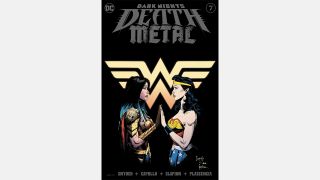
While the returns are still early(ish), if DC's in-progress Infinite Frontier editorial era delivers on the promises of Dark Nights: Death Metal, it'll likely move up this list in the coming months and years.
As detailed here, the January 2020 finale of the Scott Snyder-written magnum opus event series was, in Newsarama's view, a pretty major reboot - one that has seemingly redefined the DC Universe.
Now, whether this new architecture of DC canon and continuity pays real narrative dividends over time remains to be seen - and so far more than a year later it's a lot of questions without answers. But the potential is there for what Snyder called an "Anti-Crisis" to find its way to near the top of the list where (if you keep reading) the original Crisis resides.
Buy: Amazon
Comic deals, prizes and latest news
Get the best comic news, insights, opinions, analysis and more!
9. Green Lantern: Rebirth
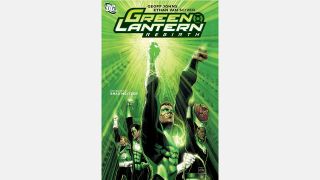
This 2004-2005 limited series Green Lantern: Rebirth resurrected a dying Green Lantern franchise and started writer Geoff Johns' journey toward becoming DC's go-to event architect — and one of the company's most successful retcon writers.
Green Lantern: Rebirth brought a disgraced Hal Jordan back from the dead, restored the charter's former heroic reputation, resurrected a huge, universe-spanning Green Lantern Corps, and explained questionable areas of the Green Lantern mythos in fresh, new ways — all without dumping the continuity that had come before.
After its publication, the Green Lantern franchise became one of DC's strongest, anchoring the DC Universe-wide Blackest Night just a few years later.
Buy: Amazon
8. Zero Hour: Crisis in Time
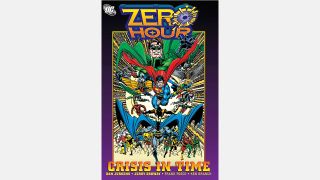
You'll be seeing the word "crisis" a lot in this list, but this 1994 event Zero Hour: Crisis in Time is specifically linked to the grand-daddy Crisis of them all — Crisis on Infinite Earths.
That earlier 1985 series completely rebooted the DCU and combined its multiple Earths into a single timeline in an effort to make sense of a publishing history that existed for nearly half a century in real-time but only a fraction of that in story-time.
We'll get to that in more detail later, but the retcons the first Crisis required and new conflicts it created showed DC readers that the passing of time was an inherent problem that was always going to require continued maintenance, which is mostly what this list is all about.
Characters like Hawkman and the Legion of Super-Heroes owe much of their post-Crisis continuity clean-up to the Zero Hour, which pitted a character named Extant (the former Hawk of Hawk & Dove – it's complicated) against the DCU and played with the idea of time itself.
Buy: Amazon
7. DC Universe: Rebirth
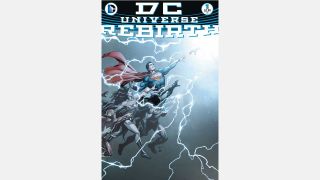
DC Universe: Rebirth, a May 2016 one-shot by Geoff Johns and several DC superstars, brought back many of the relationships and characters that readers were missing since DC's 2011 full reboot 'The New 52.' It resurrected the long-missing Wally West, set up the return of the classic Superman, and also surprisingly set up the Watchmen universe crossover Doomsday Clock.
The newly re-numbered and re-branded series that followed restored some oomph to DC's publishing line by — as DC explained it — concentrating on each character's "core." The 'Rebirth' era restored numerous aspects of DC continuity that were previously lost and opened the door to the current 'Infinite Frontier' concept.
Buy: Amazon
6. Final Crisis
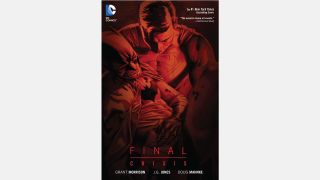
This 2008 series Final Crisis, written by Grant Morrison, focused on efforts by DC heroes to defeat the villain Darkseid as he plots to take over reality itself.
Hailed by some critics as a masterpiece for its mind-bending concepts (a staple of Morrison's style), it was alternately called confusing by others for its fast-paced and sometimes content-crammed storyline.
By the end of the series and its many tie-ins, Martian Manhunter was dead (he got better), Batman was believed dead (he was really lost in time but found his way home), and the continuity of three different iterations of Legion of Super-Heroes necessitated by all the previous DC Universe reboot was combined into one (and that's still frankly confusing).
Besides its immediate ramifications, the story and its aftermath greatly influenced the aforementioned recent Dark Nights: Metal series that rocked the DCU.
Buy: Amazon
5. Death of Superman
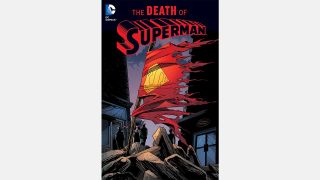
Among all its accomplishments, perhaps the most penetrating aspect of 1992's 'Death of Superman' event was that it proved that even Superman could die ... for a little while.
Crossing into multiple series and tie-ins, it told the story of how Doomsday defeated Superman, how the world reacted, and who showed up to take his place – the latter part featuring the introduction of several new characters who stuck around to help form the later DCU.
The event made mainstream news, sold like crazy, and not only influenced later comic book stories but it was incorporated into DC's cinematic depiction of Superman as well, with part of the tale being adapted into Zack Snyder's Batman v Superman: Dawn of Justice and Justice League.
DC will pay homage to this landmark story on its 30th anniversary this year, with May's 'Death of the Justice League' and subsequent Dark Crisis.
Buy: Amazon
4. Flash of Two Worlds
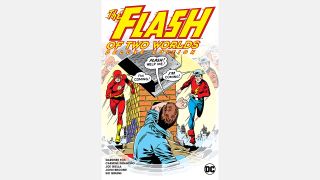
It's difficult to explain how important the 'Flash of Two Worlds' story was in 1961's The Flash #123. It not only introduced the idea of DC having an 'Earth-Two,' but it essentially debuted the idea of the Multiverse that is featured in DC comic books, TV shows, and soon-to-be movies today.
Hell, even Marvel Studios has embraced the concept of a multiverse.
Written by Gardner Fox with pencils by Carmine Infantino, the story featured the then-current Flash, Barry Allen, being transported to another Earth where the original Flash, Jay Garrick (who Barry knew as a comic book character), existed.
The story explained how all the DC Earths vibrate at specific frequencies, borrowing from theoretical science of the time. The meta-textual elements are being embraced by DC more and more every passing year.
The idea of traveling between worlds has essentially become DC's defining and distinguishing editorial element and as mentioned has greatly influenced other publishers as well.
What started in The Flash #123 is the central theme of DC's recent Infinite Frontier limited series, with its events specifically mentioned in an issue.
Buy: Amazon
3. Infinite Crisis/52
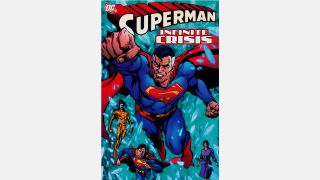
It's tough to separate these two events because Infinite Crisis by Geoff Johns and Phil Jimenez led right into DC's ground-breaking, team-written-and-drawn weekly series 52.
The ramifications were numerous, but perhaps the biggest was the return of the DC Multiverse that had been eliminated in 1985's Crisis on Infinite Earths.
It all started in Infinite Crisis with the death of multiple characters and the hint that maybe the Multiverse could return. Then in 52, DC actually made the new Multiverse a reality, although limiting it to just 52 worlds.
As an added bonus, the publisher proved that it could deliver a weekly series for one year without a late issue, something of a significant publishing accomplishment in its own right.
Buy: Amazon
2. Flashpoint/The New 52
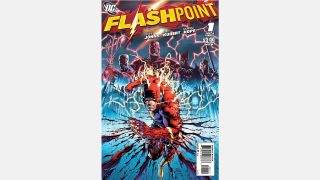
Whether readers loved or hated DC's 2011 reboot and total renumbering of its line — titled 'The New 52' — the fact remains that this event had major ramifications.
After the Flash traveled back in time in the limited series Flashpoint and changed history, the continuity of the DCU changed. Some heroes became younger, others were eliminated altogether, and the event allowed DC to completely retool the origins of just about every single character and concept to which it owned the rights.
The timeline that had once stretched back to before World War II was now shortened to a five-year history and scores of characters were re-introduced as new, inexperienced superheroes — or weren't re-introduced at all.
The word "Flashpoint" has been used for similar DC stories in other media and this year's Flash film seems based on the premise.
Plus Flashpoint Batman will return in a new follow-up series called Flashpoint Beyond.
Buy: Amazon
1. Crisis on Infinite Earths
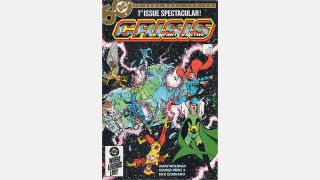
What can be said about the landmark 1985 series by Marv Wolfman and George Pérez that hasn't already been said?
Crisis on Infinite Earths changed the whole landscape of the DCU and served as the first time a comic book company would reboot its entire continuity to freshen its product — something that's much more frequent these days.
Crisis killed boatloads of characters (back when character deaths actually meant something), including the high-profile death of Supergirl and a sacrifice by the beloved Barry Allen version of The Flash, one that took him away from comic books for more than 20 years.
Mostly, it cleaned up DC's continuity after 50 years of publication (although arguably over 35 years later unsuccessfully) and allowed a new batch of writers and artists to re-invent them or give them new life.
Every DC event since owes its existence, really, to the original Crisis.
The story was adapted in 2019 and 2020 - surprisingly faithfully - for CW's Arrowverse.
Buy: Amazon
Vaneta has been a freelance writer for Newsarama for over 17 years, covering Marvel and DC, and everything in between. She also works in marketing.
Most Popular







